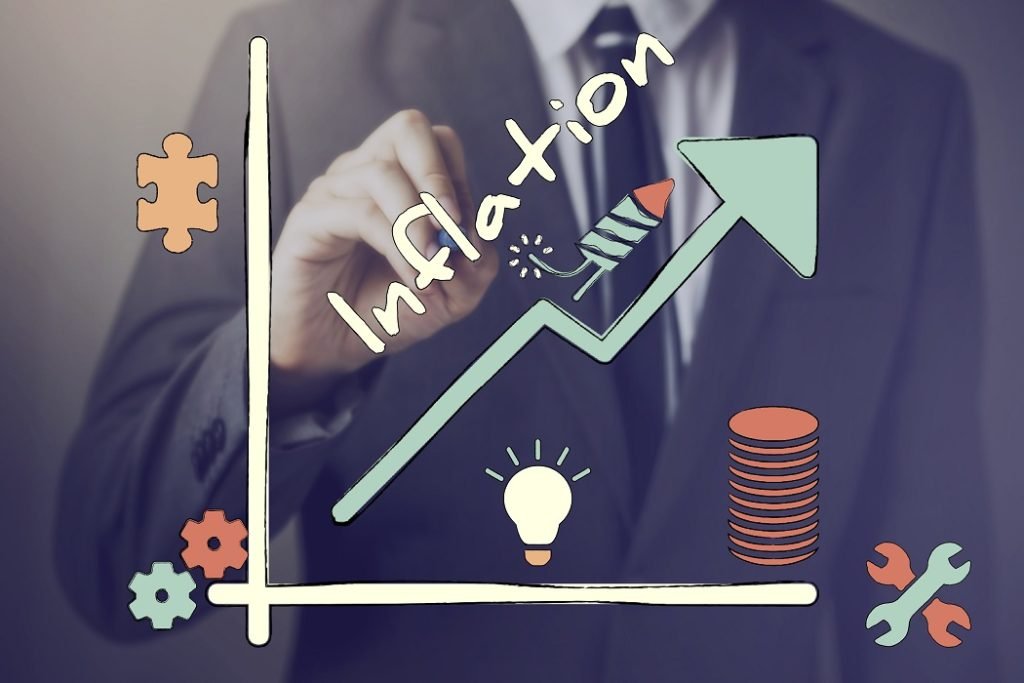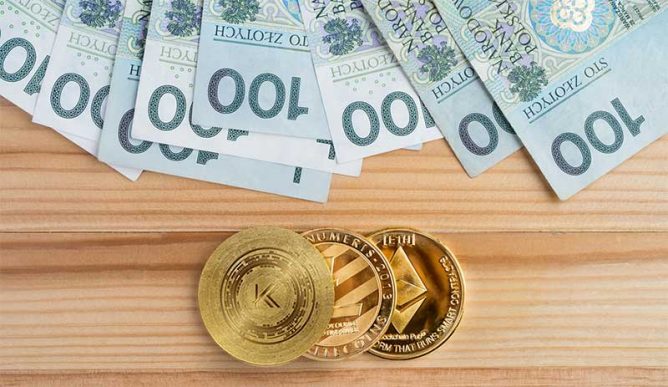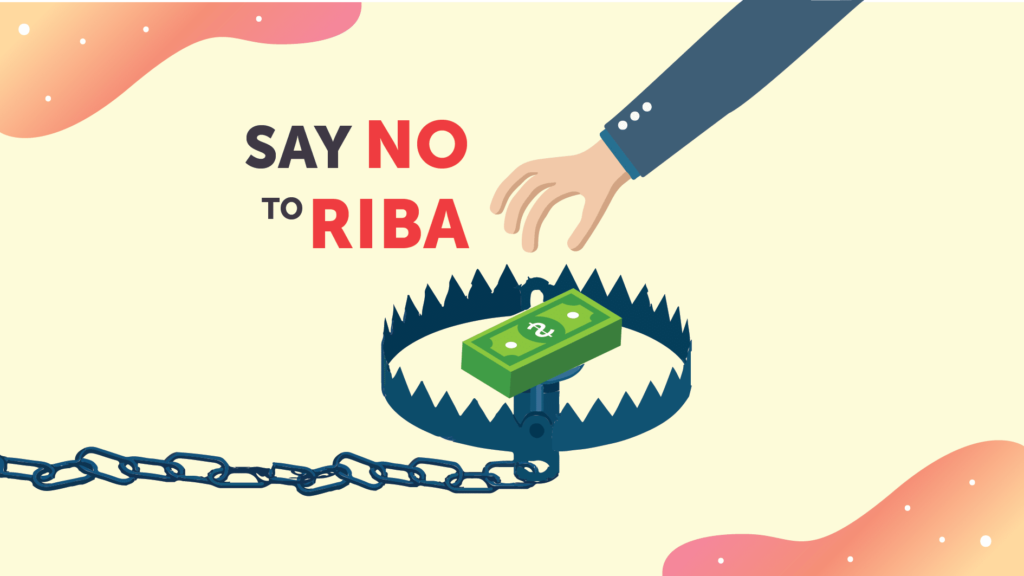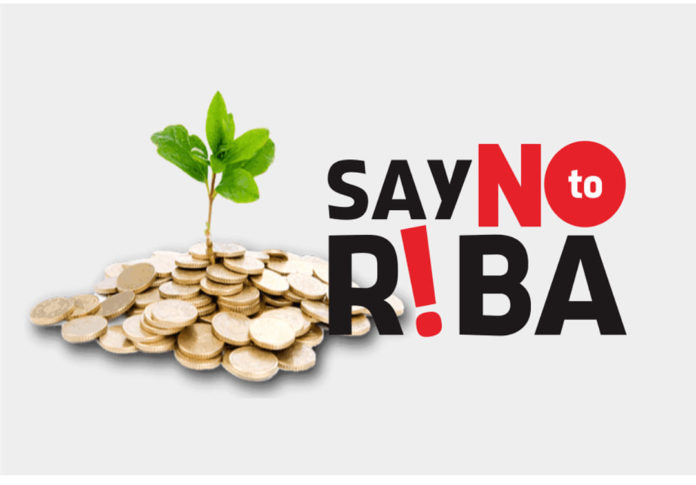Introduction
One of the main demands of the religious scholars [Ulema] and Muslims is the elimination of Riba in Islamic Republic of Pakistan. According to the Quran, Riba is prohibited, which has been defined by scholars as: “all forms of interest are Riba and hence prohibited”.
The Islamic finance contains many other prohibitions as well, such as on consumption of alcohol, gambling, uncertainty, etc. The word “Riba” literally means “excess or addition” and has been translated as “interest”, “usury”, “excess”, “increase” or “addition”. The movement started with activists and scholars such as Abul A’la Maududi, Muhammad Hamidullah, Anwar Qureshi, Naeem Siddiqui in the late 1940 and early 1950s. They believed that commercial banks were a “necessary evil,” and proposed a banking system based on the concept of Mudarabah, where shared profit on investment would replace interest, thus the concept of Islamic banking and finance emerged.[1] In 2019, the total assets of global Islamic banking amounted to about 1.99 trillion U.S. dollars.[2] The total value of global Islamic banking assets was projected to continue to increase.
Surprisingly even in the present Interest based economic system, [considered as ‘Riba (usury) based’ by most Muslim scholars] there are 26 countries (Kafirs) with Zero Interest rates[3] [or Riba free], and 29 with less than 1% interest rate. In Pakistan the interest rate is near 7% while inflation is around 10% in 2021, which keeps fluctuating. The interest rates and inflation, both affect the creditor and debtor, which will be briefly analysed in the light of the Quran. “The Riba Resolved” is “A Solution” to the complex issue, in prevalent environments in Pakistan, not “The Solution”. The proposed Riba free solution can also be applied universally by the Muslim privately if not enforced through the law of land of in Muslim or non-Muslim countries.
The Riba issue has been resolved on the basis of guidance from the Quran,[4] the final criterion to judge right and wrong[5], which has clarification of everything[6], guidance and mercy and glad tidings for the Muslims. Quran[7] is the Only, Last,
Complete, Protected Divine Book of Guidance without any doubt[8], all other books[9], are human efforts, none can claim to be complete, free from error[10] and doubt, however may be consulted as they contain wisdom and explanations but under the shadow of Quran. The perverse hearted who do not believe in Supremacy of Quran, and blindly prefer the opinion of their religious lords,[11] will not benefit but it will add further to their perversity.[12] They may continue to remain hostage in a perpetual state of delusive sin and guilt.
Quran on Riba & Justice
1. Do not consume Riba, doubled and multiplied (Quran;3:130)
2. Consuming of the people’s wealth unjustly is forbidden. (4:161)
3. Riba to increase within the wealth (40:39)
4. Riba is Satanic, forbidden & great sin (Quran;2:275-2:280)
5. Injustice forbidden” (Qur’an;2:279)
6. Full measure and weight in a[13] fairness. Do not defraud.” (Qur’an;11:85).
7. Don’t take money illicitly. [Quran 2:188][14]
The topic has been covered in four parts in Defence Journal (DJ), this is the 4th and the concluding part. The following aspects have been covered in each part briefly summarized here to recapitulate:
1. The Monetary System
2. Pakistan: Monetary policy and growth
3. The Gold
4. Fiat Money
5. The influence of Dollar System on Pakistan
6. Currency Printing
7. Basis of Currency Printing
8. Inflation Control
9. The Shariat Appellate Bench of Pakistan 1999 Judgement & Hyperinflation
10. Printing a large number of notes increases inflation.
11. Printing in Financial Trouble
12. Decrease in Worth & Purchasing Power
13. Indexation
14. Special Considerations for Investing to offset Inflation Effects
15. Why Interest rates change?
16. Pakistan: Impact of Currency Printing and Inflation
17. Case Study-1 National Savings Schemes [ NSC ]
18. Case Study-2 House Building Finance Corporation [HBFC] Loans
19. Quran on Riba & Justice
20. Why are Heavy Loans Written Off?
21. 53 Kafir (infidel) Countries: Riba Free
PART-4 [The present issue]
22. Riba Free Pakistan
a. Protecting the Value of Money
b. Pak Dinar
c. Recommendations
23. Conclusion
CASE STUDIES PAKISTAN
The common reader may not be aware of the system of money management at government level, through the monetary system. The monetary system is a system by which a government provides money in a country’s economy. Modern monetary systems usually consist of the national treasury, the mint, the central banks and commercial banks.
Fiat Money
Fiat money[15] is a government-issued currency that is not backed by a commodity such as gold. Fiat money gives central banks greater control over the economy because they can control how much money is printed. Most modern paper currencies such as the U.S. dollar, etc, are fiat currencies.
In contrast to commodity-based money like gold coins or paper bills redeemable for precious metals, fiat money is backed entirely by the full faith and trust in the government that issued it. One reason this has merit is because governments demand that you pay taxes in the fiat money it issues. Since everybody needs to pay taxes, or else face stiff penalties or prison, people will accept it in exchange (this is known as Chartalism). Other theories of money such as the credit theory, suggest that since all money is a credit-debt relation, it does not matter if money is backed by anything to maintain value.
Why do modern economies favor fiat money?
Prior to the 20th century most countries utilized some sort of gold standard or backing by a commodity. As international trade and finance grew in scale and scope, however, the limited amount of gold coming out of mines and in central bank vaults could not keep up with the new value that was being created, causing serious disruptions to global markets and commerce. Fiat money gives governments greater flexibility to manage their own currency, set monetary policy, and stabilize global markets. It also allows for fractional reserve banking, which lets commercial banks multiply the amount of money on hand to meet demand from borrowers.
Basis of Currency Printing
In any country the responsibility to print and manage a country’s currency rests with the Central/State Bank of that country. The volume and value of currency to be printed is done on the basis of a forecasting model[16] which takes into account, among other things, expected growth in gross domestic product (GDP), likely inflation, seasonal factors, currency lying in its vaults, replacement demand (old notes that come back) and growth of non-cash payments (cheques, card and electronic payments). GDP (nominal) per capita does not, however, reflect differences in the cost of living and the inflation rates of the countries.
Printing a large number of notes increases inflation
Analyst Sana Taufiq says that printing more notes means more money is coming to people. This is increasing their purchasing power and if they spend more money, it increases the prices of things as well as the inflation rate. She points out that interest rates are raised to control such inflation.
Indexation
Indexation is a system of economic control in which certain variables (such as wages and interest) are tied to a cost-of-living index so that both rise or fall at the same rate and the detrimental effect of inflation is theoretically eliminated.[17] Indexation requires identifying a price index and determining whether linking the value to the price index will accomplish the organization’s goals. Indexation is most commonly used with wages in a high inflation environment. “Indexation” is also known as “Escalating”.[18]

The indexation of government debt[19] to inflation is related to transferring the inflation risk from depositors to the government in an attempt to reduce inflation. Some governments have ultimately subjected their short-term debt instruments to de-indexation so their central bank could regain control of short-term interest rates from a monetary policy standpoint and be in a better position to fight inflation. Another objective of indexation, for certain governments with already low inflation rate, is to reduce their borrowing cost by paying lower interest rates to depositors in exchange for assuming inflation risk. Both the UK and the US have issued inflation indexed government bonds to reduce their borrowing costs. When governments such as the UK and the US issue both inflation indexed bonds and regular nominal bonds, it gives them precise information on inflation expectation by observing the difference in yields between the two types of bonds. Robert Shiller has done extensive research on all mentioned aspects of government bond indexation.
The indexation of currency[20] or exchange rate often refers to a country pegging its currency to the US dollar. In other words, such a country’s central bank would buy or sell dollars so as to maintain a stable exchange rate with the dollar. Such a policy has been adopted by several Asian countries including China.
Various assets and values might be subject to indexation. Some countries might apply indexation on certain types of tax payments at varying periods. For instance, it might be applied to debt mutual funds that have been held for a certain minimum amount of time before being sold. In such a case, the original purchase price is adjusted for inflation when calculating long-term capital gains that will be taxed when those debt funds are sold. This can lead to a discount on taxes after the transaction for the seller of such assets.
Indexation might also be applied to pension funds to reassure participants that their assets will keep pace with inflation. That way, the value of those assets do not erode as time passes.
Application of Indexation of Inflation with savings deposits will remove Riba to any party, an Indexation calculator can be prepared by experts.
Indexation & Shariat Appellate Bench of Pakistan 1999 Judgement
The Shariat Appellate Bench[21],[22] of Pakistan’s judgment in 1999 case declined[23] to accept indexation of currency[24] because it is a normal part of any economic system, however in case of Hyperinflation [defined as 50% or more per month[25]], the Court accepted the right of creditor for compensation of heavy loss. Ignoring lesser loss i.e. less than 50% pm i.e. 49% , 40, 30 , 20 , 10% per month is not loss? Riba/ interest, small or compound is forbidden or Haram then loss to Principal amount of creditor small or big is also forbidden, is Haraam. If inflation is part of any financial system it must be addressed being Un-Islamic. This judgement is against the Quran, because, Quran says:
1. For you is the original sum of your wealth [Principal]. Neither you shall commit injustice, nor injustice would be done to you (Quran;2:279)[26]
2. “Therefore, establish Balance in the society in absolute justice. And never belittle the Scale of Justice in the community and in all your transactions with your own ‘Self’ and with others” (Quran;55:9)
3. Full measure and weight in all[27] fairness. Do not defraud.” (Qur’an;11:85).
4. Consuming of the people’s wealth unjustly is forbidden. (4:161 )
5. Don’t take money illicitly. [Quran 2:188][28]
Injustice cannot be categorised on less or more amounts, it’s unfair and deprives the creditor of its principal wealth deposited with banks or state institutions.
The Fisher Equation
The inflation factor was considered being a commonsense matter, however it was found that there is proper rule on this subject, called “The Fisher Equation”
The Fisher equation provides the link between nominal and real interest rates. To convert from nominal interest rates to real interest rates, we use the following formula:
Real interest rate nominal interest rate inflation rate.[29]
To find the real interest rate, we take the nominal interest rate and subtract the inflation rate. For example, if a loan has a 12 percent interest rate and the inflation rate is 8 percent, then the real return on that loan is 4 percent.
In general, as interest rates are reduced, more people are able to borrow more money. The result is that consumers have more money to spend. This causes the economy to grow and inflation to increase. The opposite holds true for rising interest rates.
1. There is a general tendency for interest rates and the rate of inflation to have an inverse relationship.
2. In the U.S, the Federal Reserve is responsible for implementing the country’s monetary policy, including setting the federal funds rate which influences the interest rates banks charge borrowers.
3. In general, when interest rates are low, the economy grows and inflation increases.
4. Conversely, when interest rates are high, the economy slows and inflation decreases.

The Essence
1. The bottom line is to insist and demand that the government improves the financial management and formulate policies to keep the Interest rates (KIBOR) at Zero level or equal to Inflation. If 26 Countries are keeping interest rates at Zero level and 29 at less than 1%, why can’t the Islamic Republic of Pakistan do it?
2. 1.5 Billion Muslims should not be kept hostage to the wishes and selfish desires of some ignorants who exploit their faithfulness by keeping them in a perpetual state of delusive sin and guilt.
3. The scholar, if they seriously want to address the issue, they should demand and strive to attain Zero interest rates or equal to inflation, rather than wasting time in sloganeering and running around in courts.
4. Those who still are in doubt can subtract inflation from the profit they receive on their investments, this extra amount, if any, can be given to charity/sadaqah. Voluntary Indexation of Inflation. [Allah knows the best]
Anyone may calculate for various options on this basis.
The 5 Countries With the Lowest Interest Rates are Switzerland, Denmark, Japan, Sweden, Spain[30]. The 20 countries with the lowest inflation rate in 2020[31]
Interest rates in the world[32]
Riba Free Pakistan
If 55 countries in the world can keep the interest rates at Zero or below 1%, why can’t Pakistan do it? Instead of making hue and cry we need to analyse the reasons for our failure, the self evident are:
1. Incompetence,
2. Financial mismanagement
3. Corruption
4. Lack of will
Instead of running around in courts and sloganeering people must make concentrated efforts to address the real problems to achieve Zero interest rate and control inflation.
The critical examination of the following two case studies in the previous issue of DJ is important:
- Case Study-1 National Savings Schemes [ NSC ]
- Case Study-2 House Building Finance Corporation [HBFC] Loans
- The Fisher Equation, must be known to our scholars and financial experts, they must apply and discover the facts.
Though apparently it appears that interest is being paid, following the command of Quran, use of intellect for critical analysis and statistics reveal the opposite.
It is evident that none of following Quranic injunctions on Riba and Justice are being blatantly violated, rather there is justice and fairness in prevalent system, strict adherence to other Sharia prohibitions in business/ transactions can make the Islamic Banking and Finance,[33] a success:
1. Do not consume Riba, doubled and multiplied (Quran;3:130)
2. Consuming of the people’s wealth unjustly is forbidden. (4:161 )
3. Riba to increase within the wealth (40:39)
4. Riba is Satanic, forbidden & great sin (Quran;2:275-2:280)
5. Injustice forbidden ”(Qur’an;2:279)
6. Full measure and weight in all[34] fairness. Do not defraud.”Qur’an;11:85).
7. Don’t take money illicitly. [Quran 2:188][35]
Protecting the Value of Money
There are arguments against indexation, but the question remains: how can we protect the value of money over time against fluctuations in prices, which is a fact of life and which at times is also desirable? The question will keep on nagging the creditors. The fact is that if a satisfactory solution to this problem is not found then the creditors will shy away from lending money on the basis of qard-e-hasan while in an Islamic society the system should be such as to encourage people to lend money as qard-e-hasan.
Pak Islamic Dinar
Currency is used to denominate share capital and financing operations of IDB (Islamic Development Bank), Jeddah. The value of one Islamic dinar equals one Special Drawing Rights (SDR) of the International Monetary Fund (IMF). The value of the SDR is based on a basket of five currencies the U.S. dollar, the euro, the Chinese renminbi, the Japanese yen, and the British pound sterling. Taking cue from this, one suggestion is found to be interesting that the government may float a new currency (virtual not printed) only to be used as reference in investments credit debit calculations voluntarily by individuals and parties (or bond or certificates option is also there for government National Saving Schemes) under a new nomenclature, say, Pak Islamic Dinar[36] or whatever name. The value of the Pak Islamic Dinar should be equal to a basket of commodities or currencies like IDB, as convenient. The price of these commodities should be announced everyday on the basis of the market price of these commodities.
Those who want to hedge themselves against price fluctuations should deal in Pak dinar in contracts/agreements. Thus, loans, salaries, wages, contracts, etc, can be denominated in Pak Islamic Dinar or Pak Rs. While borrowing, the debtor with mutual agreement with the creditor can accept Pak Islamic Dinar and return the same number of Pak dinars on the maturity date [The practice is already being followed by some people to keep gold or US $ as reference] . There should be one single rate of the Pak dinar for buying as well as for selling. It will also take care of speculation in this currency. Pak Islamic Dinar will not replace Pak Rs, nor will it substitute in normal, existing practice, (Pak Islamic Dinar will not be printed, it is virtual just for calculations).
The proposal has the following merits:
1. It is covered by the Shari‘ah rules. There is no excess in borrowing or selling. The loans are taken in Pak Dinars and returned in the same currency.
2. It is equally applicable both in times of inflation and deflation. So it does justice to all irrespective of the trend of the general price level.
3. It is applicable to all such contracts which mature over time, such as wages, salaries, contracts for construction or supplies, etc. It provides protection to everyone and not to wealthy people only.
4. It is easy to use. The government announces daily rates for foreign currencies. It can do so for Pak Dinar as well. Since the worth of Pak Dinar is calculated in Pak Rs, on a daily basis, there will be no problem with its liquidity.
5. There will be one rate for buying and selling, therefore, the problems of speculation and earning commission by sale and purchase of Pak dinars will not arise. [Source: Elimination of Riba, Khurshid Ahmad, Khalid Rahman and Zahed A. Modified.]
Recommendations
1. Education and thorough knowledge of the financial system for religious scholars and financial experts is the need of the hour.
2. Public must be educated about inflation and interest rates relationships and Fisher’s equation to determine the actual interest rates. The two case studies above may help.
3. The Government must make all out efforts for good financial management, control corruption, inflation, stop printing excessive money, achieve a Zero interest rate, till then Pakistan has to keep the interest rates in line with the inflation rate, plus some service charges by the banks. This will not incur loss of “money value” to any party, fair service charges by banks is their right for the services being provided. Anything more than this will be Riba which must be avoided.
4. Islamic banking should be encouraged.
Conclusion
1. In this era of “paper currency”[37] shifting to digital currency and banking in the prevalent international economic system, there is a need to understand the economic and banking system thoroughly before issuing Fatwas based on ignorance and lack of knowledge.
2. Once Pakistan is developed economically and joins the club of rich countries, it can have Zero inflation and Zero interest rate, the Riba issue will get resolved forever. To achieve it we can consider the Al-Khilafah system.[38] [To be explained in next DJ]
3. While the fundamental principles outlined by the Holy Quran 1400 years ago are valid today and forever, the scales of measurement, calculations and tools should be applied as they exist in the 21st century, which require a lot of vision, knowledge, brainstorming and hard work, which our “scholars” lack at present. We should stop behaving like mindless robots. Just memorizing holy text is not enough, pondering, deep thinking provides solutions to new problems and guidance. Allah says:
1. Do not consume Riba, doubled and multiplied (Quran;3:130)
2. Consuming of the people’s wealth unjustly is forbidden. ( 4:161)
3. Riba to increase within the wealth(40:39)
4. Riba is Satanic, forbidden & great sin(Quran;2:275-2:280)
5. you are entitled to your principal; do no wrong, and no wrong will be done to you. (Quran;279), No one can change His words, and you shall not find any other source beside it. (Quran;18:27) Nor shall you obey one whose heart we rendered oblivious to our message; one who pursues his own desires, and whose priorities are confused.(Quran;18:28)
6. Full measure and weight in all[39] fairness. Do not defraud.” (Qur’an;11:85).
7. Don’t take money illicitly.[Quran 2:188][40]
8. Woe unto every fabricating impostor, the one who hears GOD’s revelations but ignores arrogantly, grievous punishment awaits (Quran;45:7-8)
9. Ponder over its verses, and that those endowed with understanding may be mindful.(Quran;38:29)
10. Those concealing revelations of Quran are cursed by Allah (Quran;2:159)
11. Investigate, lest you commit injustice towards some people, out of ignorance,(Quran;49:6)
12. Allegory of donkey who is carrying books and does not know what is in those books. Bad is the example of those who deny the revelations of Allah. (Quran;62:5)
13. “The worst of creations in the Sight of Allah are those deaf, those dumb who do not use their intellect [Quran 8:22, also 2:18), 16:76][41]
14. “ The worst of creations in the Sight of Allah are those deaf, those dumb who do not use their intellect [Quran 8:22, also 2:18), 16:76][42]

The Crux
1.Though there are divergent opinions about the definition of Riba, an extreme position is considered, that; any profit, more or less, on money lending deposit is forbidden unless there is a business partnership according to Islamic Finance & Banking on profit loss risk sharing.
2.What is the benefit to the depositor if no profit?
a. Since there is no Riba usury interest profit, in the proposed system, [Indexation] hence the depositor is following the commandments of Allah, who will reward him here and hereafter.
b. The safety of depositor’s savings is ensured by the bank or state institutions like NSS.
c. It is the responsibility of the state to ensure that the savings deposit is kept safe from inflation by Indexing, in line with commandments of the Quran for justice.
d. What will be the role of banks? The banks will get deposits, which they will manage to provide to the needy as loans free of Riba or interest, only inflation indexation plus minimum service charges, as fairly assessed by State Bank, will be charged from the debtor. The Indexation money will be credited to the depositor, so that his savings don’t lose real value. If inflation is brought to zero level, then no Indexation money will be charged or credited. Application of Indexation of Inflation with savings deposits will remove Riba to either party, an Indexation calculator software app can be prepared by experts.
e. The term interest/profit is a misnomer, it should be called Inflation Indexation.
f. The money, instead of lying idle at home or in a safe, is being circulated for the benefit of society and by other people who want to borrow and use it for business, house building or any other legitimate purpose.
g. Till these recommendations are approved and Inflation Indexation is executed by the State Bank, the creditor and debtor may calculate the inflation effect and subtract it from the profit/interest being paid under the prevalent system. Any excessive amount to indexation is paid in charity/sadqah. If the profit rate is 10% and inflation is 9% then 1% is excessive and goes to charity. But if inflation is 12%, then patience is the only answer. This temporarily arrangement is under “law of necessity”[43] and supplication to Allah may absolve them from the great sin of Riba. [Allah knows the best].
h. The scholar, religious, political parties and civil society and all those who seriously want to address the issue, should demand from the government to introduce inflation indexation, improve the financial management and formulate policies to abolish interest or keep the Interest rates (KIBOR) at Zero level or equal to Inflation. If 26 countries are keeping interest rates at Zero level and 29 at less than 1%, why can’t Islamic Republic of Pakistan do it?
i. These verses are totally ignored by majority Religious lords“ you are entitled to your principal capital, do no wrong, and no wrong will be done to you.(Quran;2; 279) , No one can change His words, and you shall not find any other source beside it.(Quran;18:27) Nor shall you obey one whose heart we rendered oblivious to our message; one who pursues his own desires, and whose priorities are confused. (Quran;18:28)
j. 1.5 Billion Muslims should not stay hostage to the desires of ignorant religious lords who exploit their faithfulness by keeping them in a perpetual state of delusive sin by ignoring Quranic commands[44] of justice and fairness. [Allah knows the best].

if one is not yet satisfied, should know that:
“The worst of creations in the Sight of Allah are those deaf, those dumb who do not use their intellect [Quran 8:22, also 2:18), 16:76][45]
“Allah gives you another example of two men. One of them is he whose faculties of speech and mind are totally disabled. He cannot do anything of his own accord and he is totally dependent on his care-provider, unable to bring forth any good in any way. Can such a one be considered equal of the man who is fit, enjoins justice and
himself walks the Straight Path? (Allah expects you to use your faculties to the best of your abilities)” [Quran; 16:76][46]
The example of those who were entrusted with Torah, and did not apply it in their daily lives, is that of a donkey who is carrying books and does not know what is in those books. Bad is the example of those who deny the revelations of Allah. Allah does not guide the wrongdoers (Quran;62:5)
“but he insisted on sticking to the ground, and pursued his own opinions (vain desire). Thus, he is like the dog; if you put a load on him, he lolls his tongue out (as if heavily burdened, and) if you remove this (load) he (still) lolls his tongue out. Such is the description of the nation of those who belied Our Ayaat. So relate the incidents, perchance they may think and ponder [Quran;7:176][47]
“hold to pardon, and go ahead with your program of enjoining virtue and disregard the behavior of those who adamantly remain ignorant’ [Quran;7:199 ][48]
References/Related/Links:
- Riba Resolved: https://SalaamOne.com/Riba, https://bit.ly/3wvKLU0
- Currency Notes and Loan Indexation; By Ziauddin Ahmed: https://bit.ly/3g0HFkV, Pdf: https://bit.ly/3uFddkz
- Towards A Just Monetary System, Dr. Muhammad Umer Chapra: https://bit.ly/3s8SiEL
- Indexation of Loans: A Shari’ah Perspective; By Muhammad Tahir Mansoori , https://bit.ly/39Scy7s
- https://islamicmarkets.com/education/indexation-of-loans




